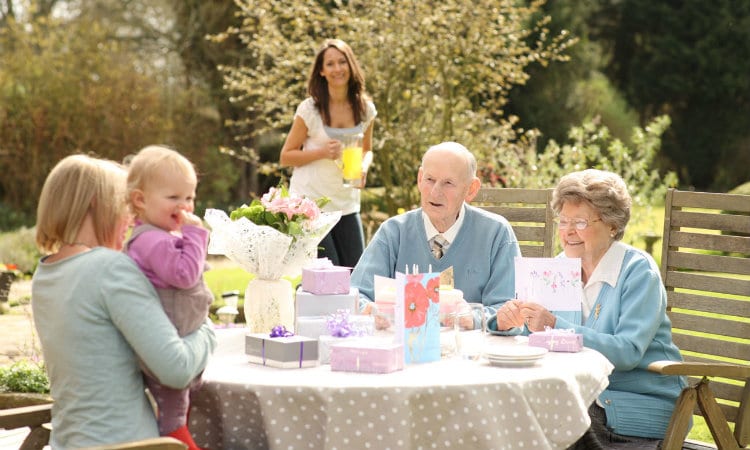With the government’s relaxing of lockdown restrictions, and a pause to shielding for clinically vulnerable people from August 1st, many families are now happily reuniting, or preparing to do so. However, the risk of COVID-19 still exists and sensible precautions should be taken when meeting up with family who are clinically vulnerable and have previously been shielding.
If you’re still shielding
The government’s advice is in two stages, the first of which comes into practice on the 4th July and says that up to six people, who don’t have to be from the same household (including those who were previously shielding) may meet up outdoors. However, social distancing is still essential to keep the risk of transmission as low as possible. Vulnerable people will be able to leave their houses, but it is still recommended that this is kept to a minimum so that potential exposure to the virus is low.
Support bubbles
A support bubble, or social bubble, is comprised of two households who are able to spend time inside each other’s homes for company and emotional support, without the need for social distancing. One of the households could belong to an elderly person living alone, or a single parent with children under 18, and the other may be friends or family. For instance…
Marjory is 81 and has a has live-in care support. Her daughter lives several miles away and hasn’t been allowed to visit Marjorie since March, but Marjorie’s live-in carer has been helping the family communicate via video calling. From 4th July, Marjorie’s daughter will be able to go to her mother’s home and spend time with Marjorie and her carer as they did before, because she will be the other household in their support bubble. They will also be able to go for a walk together for instance, but must ensure that they social distance from anyone they meet outside.
Social bubbles have been brought in to minimise the spread of coronavirus. Government guidelines recommend that your support bubble should always be with the same person, as coming into contact with many other people, especially if they were doing the same, may expose you to a greater level of risk.
It’s also important to remember that your carer counts as one member of the support bubble. Your Helping Hands carer will always demonstrate good hand hygiene and use appropriate PPE where necessary, but you should also remind those in your support bubble to wash their hands regularly, and do so yourself.
Activities to enjoy together
Being outdoors will benefit your mental health as well as physical, but taking it carefully is important when trying to regain some normality in your routine. Your carer will be able to support you with whatever you decide, so have a chat with them (and other relevant healthcare professionals) to decide how best you could both benefit. Local parks and open spaces can be enjoyable, but remember you must still observe social distancing when around anyone who’s not in your support bubble. Luckily, there are a number of activities you and your family can enjoy while following these measures, including walking pets, coffee mornings, or even weekly activities such as bookclubs, gardening and arts and crafts – of course whilst maintaining social distancing measures.

Remember: if you develop symptoms (a new continuous cough, a high temperature, or a loss of, or change in, your normal sense of taste or smell), you must self-isolate at home and arrange to have a test to see if you have COVID-19. You can also contact NHS via telephone if you do not have internet access. Your carer will be able to help you and your local manager will discuss your continuing elderly home care options with you, even if you test positive.
Click here to find out what we’re doing for your customers during the coronavirus pandemic.
